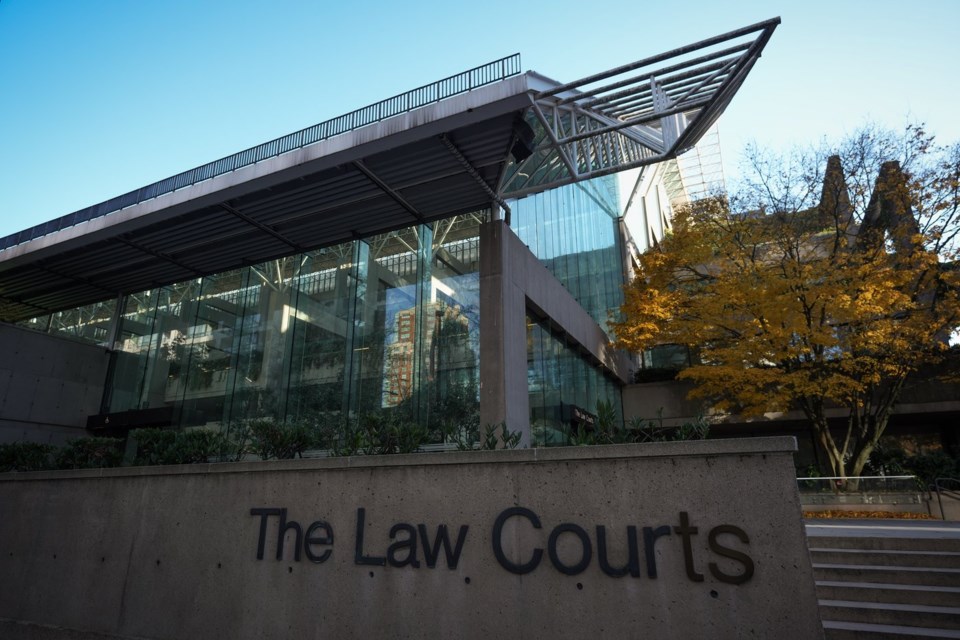VANCOUVER — The B.C. Supreme Court has ordered the provincial government to pass a law within six months providing the Francophone School Board with powers to expropriate private property to build new French-language schools.
The court found that, unlike other school boards in B.C., the Francophone School Board is the only one without expropriation powers despite it having the "greatest need" for new schools.
"Establishing a new school in British Columbia is expensive and surprisingly difficult. Land use is intricately regulated by a variety of public authorities. Suitable land is scarce and a web of institutions, procedures, laws and legal principles touches upon every aspect of the process," the ruling says.
"Despite what one imagines was the case in the early days of this province’s modern history, in the 21st century, establishing a school is not at all a simple matter of acquiring a parcel of land and hiring contractors."
The board said in a statement that the ruling posted this week is a "partial victory" in recognizing its challenges when compared to other school boards, and it acknowledges that Â鶹´«Ã½Ó³»does not provide "equivalent education" in French.
Board president Marie-Pierre Lavoie said the court ruling gives the board "access to better tools to support its hard work in finding sites and building schools."
"Parents have been wanting to have schools throughout the province in specific areas and we can't offer that service because we are faced sometimes, often, with refusal from other parties," Lavoie said in an interview Wednesday. "This judgment attempts to remediate that."
But the board statement said it's "disappointed" with several of the court's findings, including its refusal to transfer properties in Â鶹´«Ã½Ó³»and Whistler, as well as the decision to give the province time to remedy Charter violations rather than recognize "the urgent need for quality French-language schools."
Lavoie said the court gave the provincial government "latitude to remain reactionary" instead of ordering it to help the board overcome challenges identifying sites and building schools.
The board said the court's refusal to order the provincial government to approve funding for French-language school construction will "likely slow" its efforts to open the schools as guaranteed by the Charter.
"Certain aspects of the Court's legal analysis are clearly flawed," the statement said.
Mark Power, one of the board's lawyers, said Wednesday that the court's ruling is not a complete "win across the board" and they're considering an appeal.
Power said part of the "frustration" around offering French language education in B.C. has been the time it has taken "to implement a promise that was guaranteed in 1982" by the Charter.
That promise, Power said, has been implemented well for anglophones in Quebec, "but for francophones in British Columbia (it) has been very laborious and frustrating."
"So part of the question in this most recent trial was how long does one have to wait?"
The court concluded that the board can lease its schools long-term from the Â鶹´«Ã½Ó³»Board of Education, which does not "ensure a true and lasting equivalence for parents who can enrol their children" in French schools.
Lavoie said in the board's statement that the judgment is complex and the board will "need time to analyze its impacts," noting that the case can still be appealed.
The ruling said the case is the latest in a series of "prolonged and difficult lawsuits" about the Charter's guarantee of minority language education rights since it was enacted in 1982.
It said courts in 2016 and 2020 determined that "certain communities" in B.C., such as Whistler, are entitled to offer francophone schooling but "the necessary schools are still not in existence."
The B.C. Ministry of Infrastructure, a defendant in the case, said in a statement that it was thankful for the court's "guidance on how the Province can fulfil its constitutional obligations."
The statement said the province has invested more than $268 million in francophone schools since 2017, including "key investments" in several cities including Burnaby, Pemberton, Victoria, Squamish, Sechelt, Kamloops, Smithers and Duncan.
The Â鶹´«Ã½Ó³»School Board said in a statement that the court ruling is fresh and it is "currently reviewing its implications, particularly as it relates to specific school sites."
"We appreciate the complexity of the issues at hand and will take the necessary time to fully understand the impact of the ruling before determining next steps," the board said. "The (Â鶹´«Ã½Ó³»School Board) continues to support francophone education in Vancouver."
This report by The Canadian Press was first published May 28, 2025.
Darryl Greer, The Canadian Press



